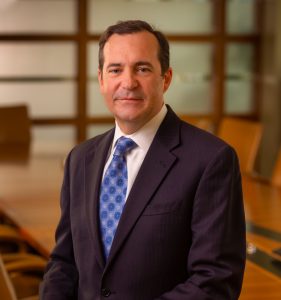Supreme Court of Wisconsin Denies Legislative Redistricting Rulemaking Petition
The Supreme Court of Wisconsin recently denied a petition submitted by former Assembly Speaker Scott Jensen, represented by the Wisconsin Institute for Law and Liberty (“WILL”), proposing new procedural rules limited solely to legal challenges to new legislative districts, including requiring such challenges to be brought solely to the Wisconsin Supreme Court. Stafford Rosenbaum Attorneys Doug Poland, Jeff Mandell, and Rick Manthe submitted an extensive written comment arguing against the proposed redistricting rule on behalf of non-partisan, non-profit Law Forward.
The genesis of Jensen’s effort to convince the Court to adopt rules governing redistricting litigation reaches back to the Court’s decision in Jensen v. Wisconsin Elections Bd., 2002 WI 13, 249 Wis. 2d 706, 639 N.W.2d 537. In Jensen, the Court declined to accept original jurisdiction over a challenge to new legislative districts based in part on the lack of existing rules governing redistricting lawsuits filed in Wisconsin state courts. The Court determined, however, that it would endeavor to create such rules, including “provisions governing factfinding (by a commission or panel of special masters or otherwise); opportunity for public hearing and comment on proposed redistricting plans; established timetables for the factfinder, the public and the court to act; and if possible, measures by which to avoid the sort of federal-state court ‘forum shopping.’” 2002 WI 13, ¶24. Following its Jensen decision, the Court created an expert committee to study how other courts approach redistricting lawsuits and to propose specific redistricting litigation rules for Wisconsin. Ultimately, in 2009, after two reports from the expert committee, public comment, and two public hearings, the Court decided not to wade into the political morass of redistricting, declined to adopt any rules specifically governing redistricting lawsuits, and disbanded the expert committee.
In anticipation of a new round of decennial redistricting in 2021, in June 2020, WILL filed a new redistricting litigation rulemaking petition on behalf of Mr. Jensen. The petition proposed specific rules applying exclusively to redistricting litigation for the Court to consider.
As noted in the comment submitted by Stafford Rosenbaum attorneys for Law Forward, the rules proposed in the petition were problematic for many reasons:
- They would have encouraged premature litigation, foreclosing political solutions and hamstringing the Court’s ability to exercise considered discretion on whether to exercise jurisdiction. Essentially, the rules would have allowed litigation to begin well before the Governor and Legislature even attempted to create new districts.
- The rules would have created an easy escape for political branches to litigate rather than cooperate. After filing a suit, the rules would have guaranteed participation solely to partisan political actors—the Governor, the Senate, the Assembly, and political parties. Anyone else—including citizen groups, municipalities, trade associations, unions, non-profit organizations, and others—would have to petition the court for the opportunity to share their views. This would have limited the scope of voices required to be included in the crucial redistricting process to partisan actors.
- Another fundamental error was that the proposal would have provided little guidance on procedural rules, such that the parties would lack notice of how a redistricting challenge would be litigated. Given that uncertainty, there was concern that the public might perceive the rules to be easily susceptible to manipulation in any given case to favor one side or the other.
- Although the proposed rules would have allowed for a hearing process on any district plan the Court might adopt, that process was ill-defined. The proposed rules did not specify, for instance, who could participate in the public hearing or what the hearing would entail.
- There were also significant timing challenges with the proposed rules. For example, they would have allowed the Court to adopt new legislative districts as few as 15 days before the deadline for candidates in those districts to file nomination papers. Such a short time frame in which to file nomination papers in the new judicially adopted districts surely would have resulted in confusion, however, as candidates for elected offices in those districts and voters alike would not actually know which legislative district they lived in until little more than two weeks before nomination papers were due.
- One of the most troublesome parts of the proposed rules was the proposal allowing the Court to “alter any deadline … or dispense with the requirements.” Thus, the rule was not so much a rule, but a guideline that could be dispensed with at any time.
In a brief order issued on May 14, 2021, the Court rejected the proposed rules. It found that “as drafted, the procedures proposed in this administrative rule petition are unlikely to materially aid this court’s consideration of an as yet undefined future redistricting challenge.” In re Petition for Proposed Rule to Amend Wis. Stat. § 809.70 (Relating to Redistricting), No. 20-03 at 4 (Wis. May 14, 2021). However, the Court advised that its decision “should not be deemed predictive of this court’s response to a petition for review asking this court to review a lower court’s ruling on a redistricting challenge or a request that we assume original jurisdiction over a future redistricting case or controversy.” Id. at 4-5. Consequently, while the Court declined to adopt rules specific to redistricting litigation, it expressly acknowledged its authority to decide redistricting disputes in the future.
This decision to reject the rulemaking proposal is significant. First, the Court rejected a rule that was deeply flawed. Second, but more broadly, the Court’s ruling signals a return to a more conventional approach that respects its role as a court of final review and resort.





